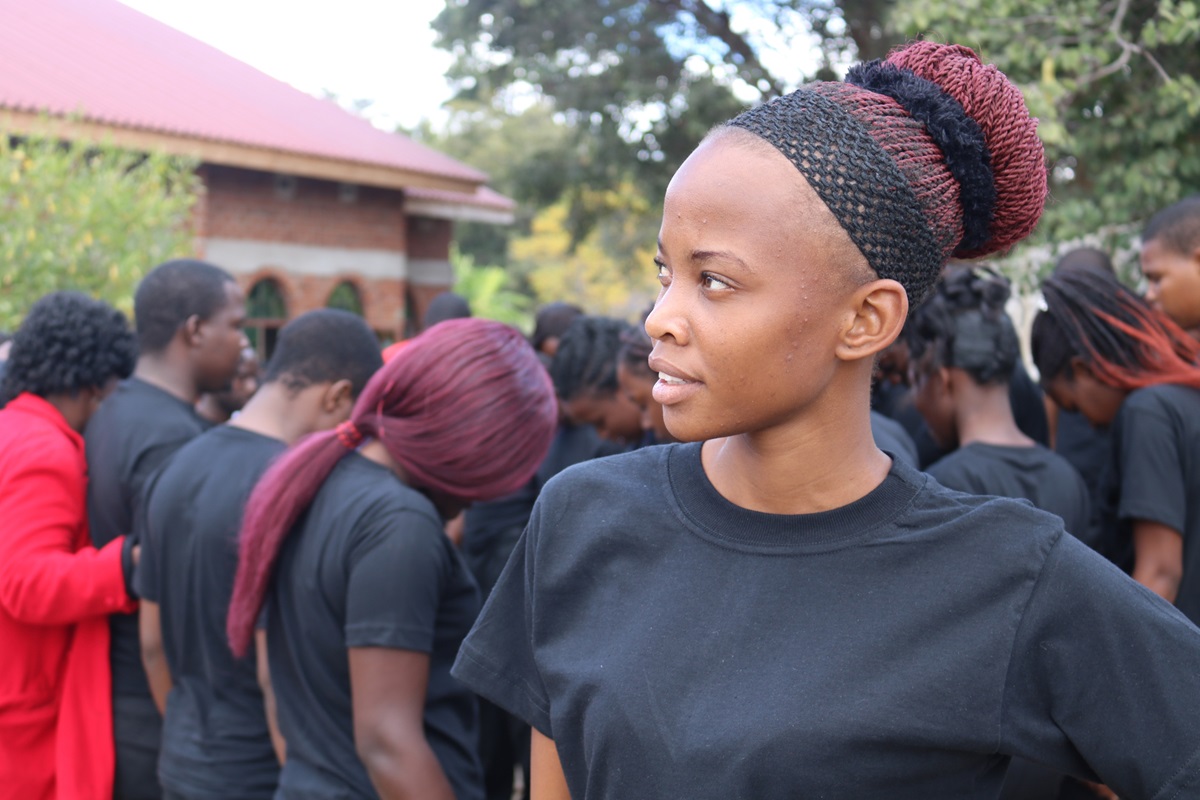Salome Mudiwa got a rude awakening when she first arrived at university.
“Unbelievable! I could not believe seeing my peers enticed by sugar daddies for a few dollars or simply for a joy ride in a car,” Mudiwa said. “And remember in the rural areas we do not see many cars in the villages, and getting a ride in one makes my friends so excited and carried away,” said the soft-spoken 19-year-old.
She moved from the rural Musana village, where her father teaches, to Bindura to attend Bindura University of Science Education.
“Sugar daddies” refers to older men who chase after young girls or women.
Gracia Kabange, a Congolese United Methodist student studying banking and finance at Harare Polytechnic, agreed and said it’s even harder for young women from other countries.
“As young girls our greatest temptation is seeking financial and emotional support from strangers who may want to use us, especially the moment they realize you are a foreigner,” Kabange said.
“Away from my family, I fear lack of support, security and companionship with people of my blood (family),” she said.
Kabange is from Luena, Congo. Mudiwa is a first-year natural resources student at Bindura University and a member of the Bindura United Methodist Youth Fellowship.
Young girls from rural backgrounds are often looked down upon as being poor and backward when they enter the highly competitive environment of university life, Mudiwa said.
The Rev. Sibongile Mabungu added that young people from different economic backgrounds meet at higher educational institutions, unlike at rural high schools, where students have grown up in the same community and the economic gaps are narrow.
Girls from rural areas often don’t have equipment such as laptops and may find they “mostly cannot match their urban peers,” said Mabungu, pastor of the Bindura Circuit. She leads the campus ministry for Bindura University of Science Education, where she has opportunities to interact with young girls.
“They end up falling for older men and are considered ‘less up-to-date’ as some struggle with even surfing the internet,” Mabungu said.
“I feel campus ministry must go beyond taking care of the moral and spiritual side,” she said. With more resources, girls from less privileged communities could get computer equipment, she said.
Mary Masvaure, a Bindura University health worker and lay leader at St. Paul United Methodist Church in Bindura, said the young women are at risk for sexually transmitted diseases. She attributes that to their inability to handle newfound freedoms away from the watch of parents.
“While they would like to experiment, they are not able to negotiate for safe sex,” Masvaure said.
Sadly, some girls also get taken advantage of by faculty in order to score high marks. Many in college circles sarcastically refer to that as “getting a sexually transmitted degree,” Masvaure said.
Church and activities can provide some protection. Mudiwa found her comfort in choral music and fellowship with other young United Methodists through the Methodist Society, a group of United Methodists at the school.
“Doubling academics and music practice is no easy task, but that is what keeps me away from the dangers of falling prey to temptation at the college,” she said.
Gaylord Gundani, a final year accounting student at Bindura University of Science Education, said that practicing music also helps keep young adults away from drug abuse.
Masvaure was thankful for the campus ministry and the choir that brings the young people together and may help them avoid trouble.
Kabange said campus ministry had been important to her when she came to college from the Congo.
“Campus ministry is important for us students because it gives us the understanding that God is our source and it’s in Him I move and breathe and have my being, so I am able to turn to Him to direct my paths,” she said.
Mafaro is a pastor and communicator with the Zimbabwe Episcopal Area.
News media contact: Vicki Brown at 615-742-5470 or [email protected]. To read more United Methodist news, subscribe to the free Daily or Weekly Digests.Like what you're reading? Support the ministry of UM News! Your support ensures the latest denominational news, dynamic stories and informative articles will continue to connect our global community. Make a tax-deductible donation at ResourceUMC.org/GiveUMCom.




